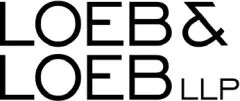- within Media, Telecoms, IT and Entertainment topic(s)
- in United States
- with readers working within the Consumer Industries and Retail & Leisure industries
- within Media, Telecoms, IT, Entertainment, Employment and HR and Real Estate and Construction topic(s)
Two recent stories highlight how the use of AI can create challenges around perception and trust.
The first involves Will Smith. In a promotional video for his summer tour, fans noticed strange distortions in the crowd shots, with blurring and extra fingers leading many to believe the entire audience was generated by AI. Smith later clarified that the crowds were real, filmed at festivals in France, Switzerland and Belgium, but that AI was used to animate and enhance some still images. The result left many viewers unsettled, sparking debate over authenticity.
The second story involves J.Crew. The brand posted retro-style campaign images on Instagram that were later revealed to be AI-generated. Observers pointed out visual glitches—unnatural shadows, distorted feet and inconsistent details—that gave it away. Initially, J.Crew did not disclose the use of AI, later crediting a digital artist, but by then the backlash had intensified. Critics accused the company of creating "AI slop" instead of hiring real models and questioned whether the campaign misrepresented diversity.
These examples aren't just isolated missteps—they signal a broader truth for consumer brands, agencies and content creators: AI can amplify creativity, but it also magnifies scrutiny. Even small imperfections can erode trust, and audiences are increasingly savvy at spotting what feels "off." As you explore AI tools, the key isn't simply avoiding mistakes—it's making deliberate choices about transparency, authenticity and the values your brand wants to signal. How you integrate AI will shape not just what people see, but how they feel about your brand.
The content of this article is intended to provide a general guide to the subject matter. Specialist advice should be sought about your specific circumstances.


